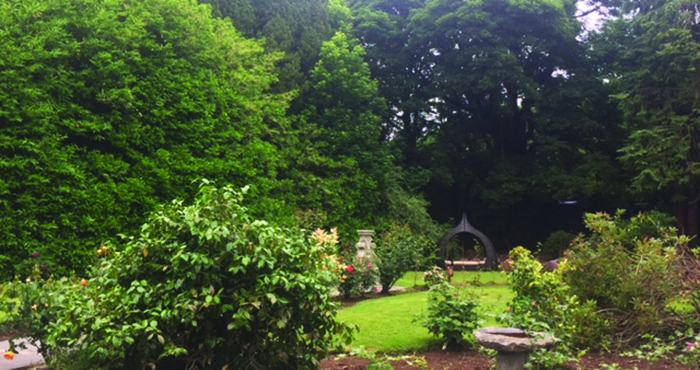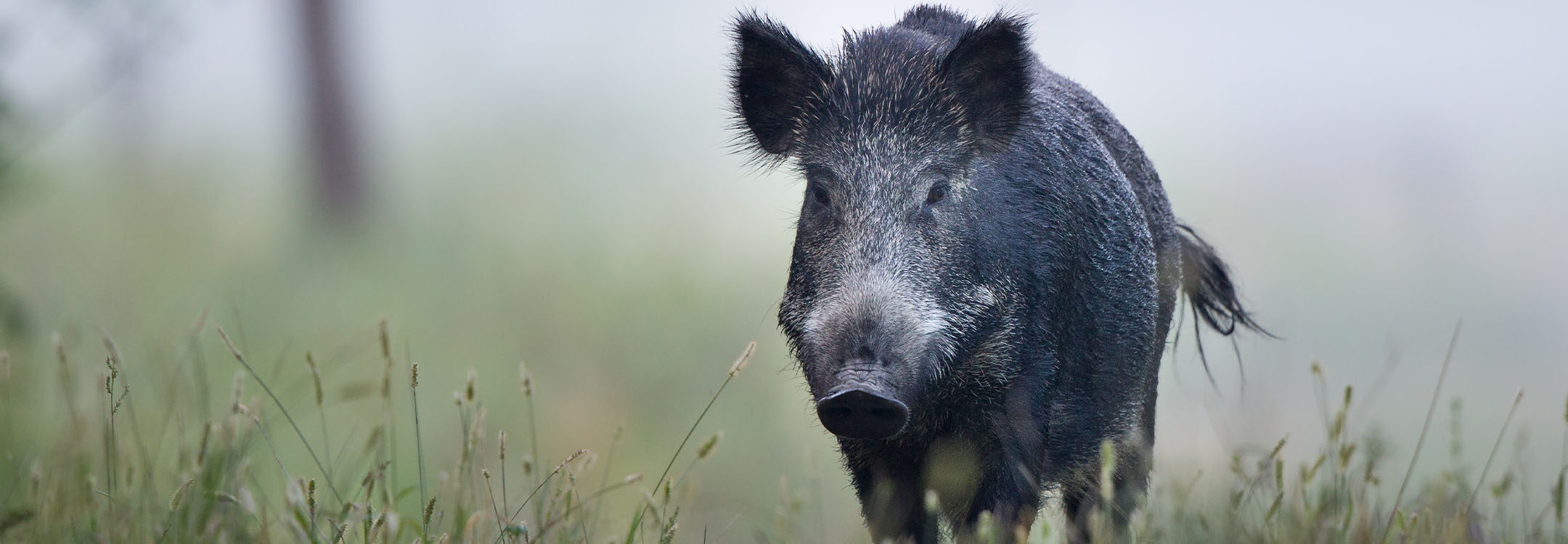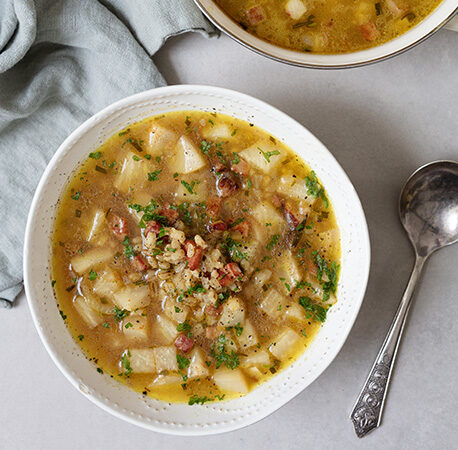In this installment of her Eat Ireland column, Deputy Editor Jocelyn Doyle finds mindfulness, meditation and top-quality meat.
Lying on the outskirts of Mitchelstown, Co. Cork, Ballinwillin House is an 80-acre estate built in 1727. I’ve been invited to experience Ballinwillin’s inaugural “retrEAT”, which promises to help guests “escape the stresses of everyday life, enjoy a tranquil and peaceful setting and nourish the body and mind.” Being prone to bouts of anxiety and restlessness myself, this sounds appealing but — since I’m here for work purposes and am alarmingly enthusiastic about the food offering — I arrive hungry and focused on a Friday evening, not exactly in the right headspace for unwinding.
Founder Pat Mulcahy’s past lives include a long-awaited stint in the Gardaí (“It was always the job I wanted for life,”) and as a horticulturalist for convents around Munster. He currently resides in, for him, a happy intersection between farmer, butcher and winemaker.
It was while playing his two concurrent roles of policeman and gardener to the nuns that Pat was employed to tidy up the gardens of run-down estate Ballinwillin House. He ended up purchasing the house in 1985, and he and his wife Miriam set about the gargantuan task of restoring the dilapidated house and gardens. “Once we engage in something, we go for it: knocking down walls, anything that needs to be done. That’s bred into you,” he says proudly, “that grit.”
Pat saw that there was no money in general cattle farming at the time, and hit on the idea of importing deer and wild boar stock from Hungary. This was a challenge, as well as an opportunity, since — as Pat observes — “it’s hard to get people to try new things.” Nevertheless, he persisted, and today he maintains Ireland’s only wild boar herd as well as over 800 organic deer.
Growing up in an isolated part of West Limerick, Pat purchased his first cow at the age of eight (no, that’s not a typo), feeling the need to contribute to the household income. The pressure of living in, farming in and even leaving the locality was immense; “even leaving the land for a few hours was frowned upon.”
These formative years gave Pat the skills he needs to cope with his workload. He readily admits that farming has an extremely high rate of “burnout,” a phrase usually associated with urban life. Without even knowing what he was doing, Pat began daily meditation practices as a child, and has carried this habit into adulthood. “This past winter was terribly hard,” he says sadly; he lost a significant chunk of his livestock due to falling trees. His inspired response was to build a dedicated mindfulness garden at Ballinwillin, in which he meditates every morning and where guests can continue to grow their own practice. Ballinwillin’s new “retrEAT” offering will combine mindfulness with quality food from the farm.

As I gaze out across fields of bright-eyed, serene deer and snuffling boar, I could see mindfulness being accomplished just by taking the time to watch these beautiful creatures, still innately wild, roaming happily through their many fields. I ask Pat what made him choose to have the farm organically certified. “It’s simply pure meat,” he answers readily. “There’s a lot to be said for serving someone a proper breakfast of quality meat.” Having suffered through many a disappointing hotel breakfast in my time, I couldn’t agree more.
The breakfast in Ballinwillin is a serious contender for the best “full Irish” of my life; I’m not even tempted by fry-ups as a rule, and yet I clean my plate both mornings. Organic eggs, wild boar puddings and rashers, and sausages of both the boar and venison varieties have me wagging my curly tail in delight.
Indeed, excellent food is the reliable thread running throughout my time in Ballinwillin. Chef Bryan McCarthy from Cork-based Greene’s Restaurant, Cask and new venture Bao Boi is in residence for the weekend, and we revel in soft bao buns stuffed with venison black pudding and soft eggs, or slow-cooked shredded wild boar; tender, rare venison loin with asparagus and shiso, with a moat of wild garlic jus; and the pièce de résistance: wild boar belly, its crispy fat shining seductively on my plate. I will never be someone who insists on lean protein, and my fridge is usually laden with ramekins of carefully rendered, squirreled-away animal fats. As it turns out, Pat is on my team. “Growing up, we ate fat meat at every meal,” he says spiritedly, “and both of my parents lived well into their 80s.”
To supplement our restoratively wholesome diet, fellow food writer Aoife McElwain hosts a Saturday afternoon workshop based on her recent book, “Slow at Work — How to Work Less, Achieve More and Regain Your Balance in an Always-On World“. Having recently suffered through her own experience of burnout, Aoife shares the fruits of her research for the book, helping us to think about work-life balance and suggesting small changes to improve mental health. We ruminate on her advice during a stroll through Pat’s garden in the gentle rain, letting the ideas “percolate,” as she says.
Both nights, I retreat to bed in my cosy room, stomach comfortably full and head clear and calm. Having come here wearing my work hat, I hadn’t actually expected the retreat to relax me, but Ballinwillin has worked its magic on me in spite of my type-A personality. I relish my final breakfast and begin the journey home a little slower — and with three precious slabs of boar belly in the back of the car.
Try Jocelyn’s recipe using the Ballinwillin boar belly here — it works perfectly with pork belly, too!
- summer events
- small business
- gut health
- OATLY
- healthy
- Crudo
- top tips
- All Together Now
- fridge cake
- Events Waterford
- me auld flower
- Events Ireland
- food festival
- news
- dublin
- events Dublin
- dublin festival
- Home-Cooking
- food and drink festival
- online cooking course
- festival line-up
- cooking
- Summer festival
- eco-friendly
- Events
- cosy
- Festivals Ireland
- wine
- Body & Soul
- grapes
- music festival
- south africa






You have to be signed in to comment this post.